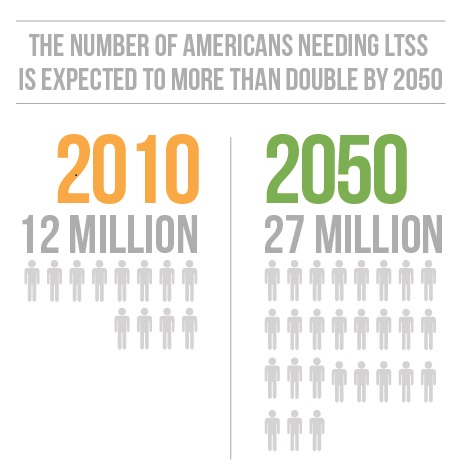National Reports Call for Long Term Care Reform – Common Themes Emerge

Healthcare in America is a scandal. The battles fought over the Affordable Care Act have dominated our political landscape, stoking the fires of both the left and the right, with the media that panders to each adding a daily dose of gasoline. A recent article by Michael Fischer in the April 17, 2014 edition of ThinkAdvisor entitled “Retiree Social Security Benefits to be Wiped Out by Healthcare Costs” portends a looming crisis of epic proportions. The article focuses on a new retirement Healthcare Cost Index, created by HealthView Services, which “shows that middle-class Americans are approaching the day when they will have to use their entire Social Security benefit to pay for their healthcare.” As disastrous as the index appears to be, consider this shocking fact: it does not include Long Term Care costs. Our prior blog posts covered 2014 Medicaid Changes in New York (including the rollout of Managed Long-Term Care) and the Current Issues in LTC Insurance. This post will highlight the current efforts in Washington and Albany to craft policies and programs that can serve the needs of our burgeoning population of seniors and people with disabilities, while preserving Medicare, Medicaid, Social Security and the public fisc.
Long-Term Care, for decades the forgotten stepchild of healthcare, has gained significant attention from policymakers of late, as the 78 million Baby Boom generation is now between the ages of 50 and 68 years. Many of the boomers have witnessed the stress on their families and the financial ruin faced by their parents who have failed to prepare for the ruinous expenses of Long-Term Care, and it appears that they are now in a position to do something about it. An author who follows aging issues for Forbes magazine, Howard Gleckman, published an article on April 9, 2014, entitled “Finally, Modest Progress Toward Long-Term Care Financing Reform”.
For the past 19 years, our annual Elder Law Forum has chronicled the policies and programs designed to cover Long-Term Care, and the woeful inadequacy of existing systems to accommodate the aging population. We discussed a program enacted through the Affordable Care Act called the “Class Act”, which as predicted when we first saw the legislation has failed miserably and was repealed in January of 2013. The President then appointed a Long-Term Care Commission, which issued a report that highlighted many of the problems, but offered few solutions. Since that time, as Gleckman reports, “a wide range of private interests including Long-Term Care providers, consumer groups, the insurance industry, and policy analysts seems to be moving toward a broad consensus on how to address this important and difficult issue.” He states that “the solution is likely to include some mix of private insurance and a public safety net beyond Medicaid-the current government program that is the single biggest payer of Long-Term Care services and support.”
We will once again be exploring the concept of a public-private solution to Long-Term Care financing at the 19th Annual Elder Law Forum, and our breakout session led by Gail Holubinka will be dedicated to reviewing reports by LeadingAge (Dan Heim of LeadingAge New York will be one of our presenters), the Bipartisan Policy Center (a Washington based group led by Sen. Bill Frist, Tom Daschle and former Health and Human Services Secretary Tommy Thompson), the Society of Actuaries and others. Panelists Bill Schroth, Brian Johnson and I will present the highlights of each position, and we will then have an opportunity for open dialogue on how to craft an appropriate solution for Long-Term Care. Don’t miss this unique opportunity to immerse yourself in the turbulent seas of aging in New York State!

